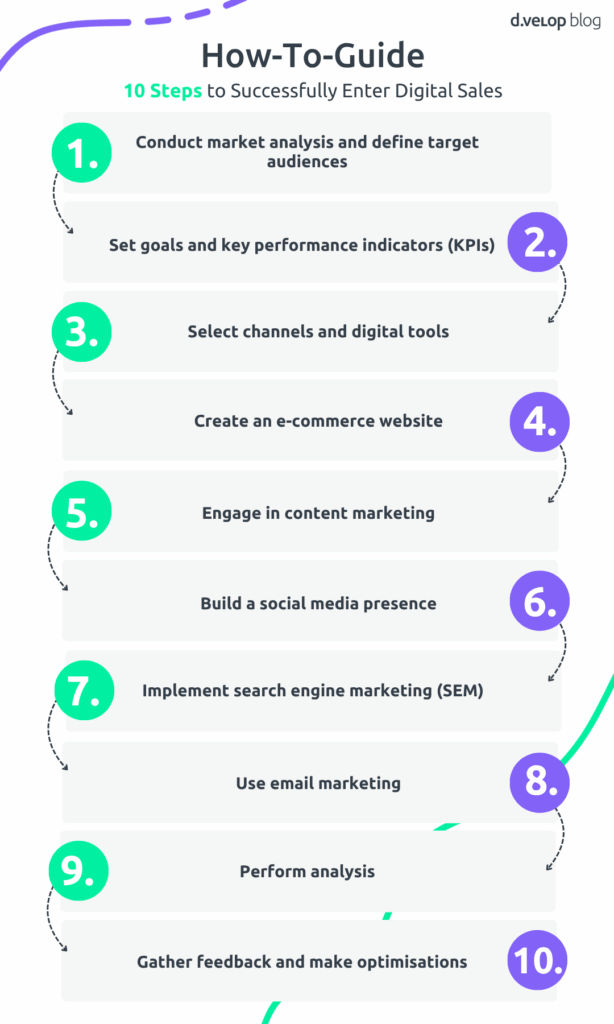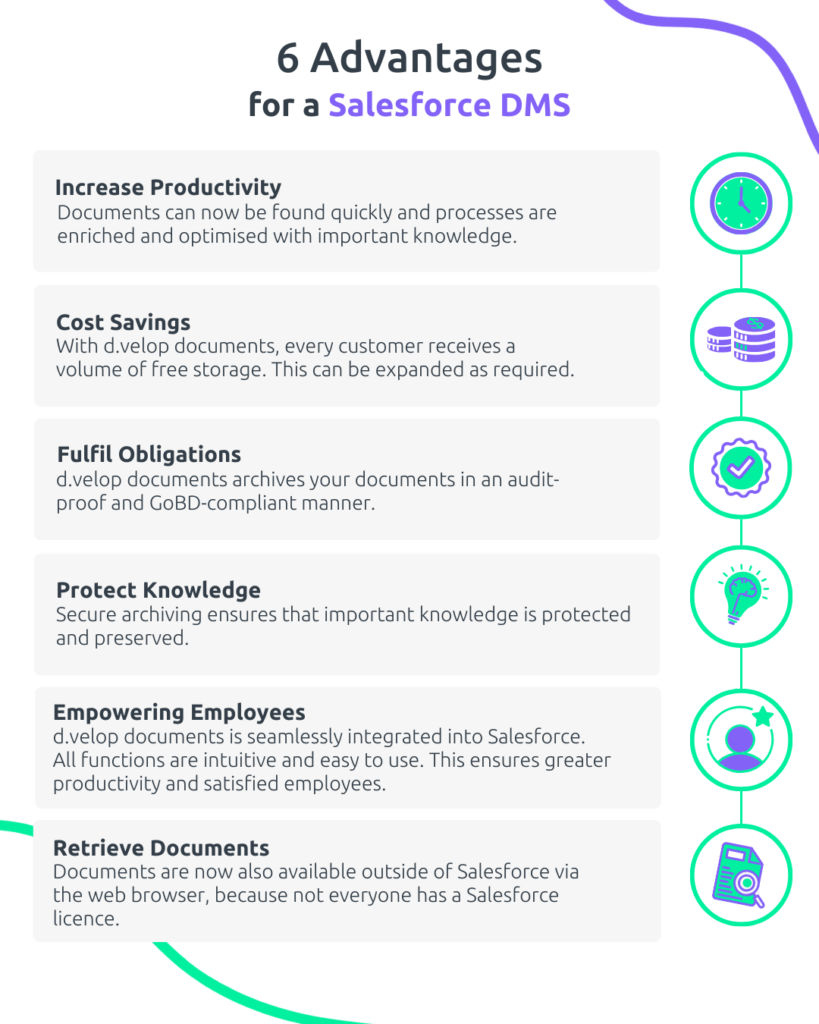In today’s fast-paced world, digital transformation is unstoppable. Customers have less time and prefer to communicate via modern, digital channels. To remain competitive, it’s crucial to use digital sales to expand your company’s reach, reduce costs, and engage customers in a contemporary way. In this article, we’ll explain the fundamentals of digital sales, explore its benefits and challenges, and provide a step-by-step guide to building a successful digital sales strategy.
What Is Digital Sales?
Digital sales refers to the use of modern digital channels and technologies to optimise sales processes within businesses and organisations. The goal is to efficiently and effectively deliver products and services to prospects and customers. The most common examples include online shops, social media platforms, and email marketing. Key digital sales channels are: E-commerce websites, Social media, Email marketing and CRM systems. Digital sales is closely linked to the digitalisation of business processes. It enables companies to reach a broader audience, automate sales workflows, and improve sales performance through data-driven decision-making.
Why Digital Sales Can Drive Your Business Forward
Digital sales is an essential part of today’s business landscape. It offers numerous advantages and opportunities that go far beyond traditional sales channels, helping companies establish themselves as successful digital enterprises.
- Expanded Reach
Digital sales allows businesses to offer their products and services globally, without geographical limitations. Additionally, continuous availability can lead to increased revenue. - Enhanced Data Insights
A wealth of data is available to support informed decision-making. Companies use various systems to analyse customer behaviour, enabling them to monitor and optimise campaigns effectively. - Cost Efficiency
By leveraging digital channels, businesses can reach their target audience with less time and money. Resources are used more efficiently. - Improved Customer Retention
Thanks to better data insights, sales strategies can be tailored to meet individual customer needs. Personalised and targeted marketing increases the likelihood of purchases and strengthens trust and customer loyalty.
Digitalisation is the greatest opportunity of our time. Those who fail to act now will miss out on the future.
Frank Thelen
Key Components of Digital Sales
To ensure a seamless and effective digital sales process, various components work together. A central platform—often a company website or online shop—is essential for establishing an online presence. In addition, search engine marketing, including search engine optimisation (SEO) and search engine advertising (SEA), is used to increase visibility in organic search results and drive traffic to the website. Content marketing (such as blogs, videos, and webinars) also plays a crucial role in building a strong presence. To maintain regular contact with customers, email marketing is an important component. A Customer Relationship Management (CRM) system is also vital for managing, tracking, and interacting with customer relationships. In this context, it is important to comply with data protection regulations and safeguard sensitive customer information.
To implement customer relationship management successfully, many companies rely on Salesforce CRM. This cloud-based platform helps businesses manage and optimise their customer relationships effectively. It offers tools and features for sales, marketing, customer service, and many other areas—all aimed at increasing efficiency and improving customer satisfaction.

Good to Know: Trends in Digital Sales You Should Be Aware Of!
- Artificial Intelligence and Automation
Chatbots and various automation tools not only enhance customer service but also help create a personalised customer experience without requiring extensive resources. - Social Commerce
Platforms like Instagram and Facebook now offer integrated shopping features, allowing products to be promoted and sold quickly and easily. Customers are addressed in a personalised way, and the purchasing process is simplified. - Augmented Reality (AR) and Virtual Reality (VR)
Customers can try out products online using AR and VR technologies. In a virtual environment, they can experience and test products in innovative ways.
What Are the Biggest Challenges in Digital Sales?
To benefit from the advantages of digital sales and strengthen your company’s market position, several challenges must also be addressed. The digital world has a low barrier to entry for new providers, making it essential to stand out from numerous competitors through unique offerings and reliable customer service.
Additionally, integrating various standalone systems can be highly complex. To remain competitive, these systems must work seamlessly together. As previously mentioned, complying with regulations such as the GDPR and ensuring data protection and security is crucial. This builds trust with customers. It’s also important to note that digitalisation does not replace people. Especially in sales, customers value a personal and individual point of contact – human interaction remains highly relevant.
Implementation: Solutions with the d.velop Platform
In the field of digitalisation, it is essential to find optimal solutions to meet the challenges of digital sales. This is where the d.velop platform comes into play. Through close partnerships with a wide range of experts in various fields, customers can advance their digital transformation via the d.velop platform – whether through the holistic digitalisation of end-to-end processes or the implementation of highly specialised, complex projects. Whether it’s a classic document management system or document-based processes, the d.velop platform provides solutions for all challenges in the area of office automation.
As already mentioned, a CRM system plays a central role in every company. The most well-known model is Salesforce CRM. That’s why d.velop integrates ECM solutions directly into Salesforce – such as d.velop documents and d.velop sign. Regardless of whether d.velop products are used in the cloud or on-premises, our proven integrations allow all benefits to be experienced directly within the Salesforce application.
d.velop connect for Salesforce addresses the issue of data silos between Salesforce and other tools by integrating comprehensive DMS features directly into Salesforce. Additionally, companies save costs by not needing extra storage space within Salesforce. The integration also enables the connection of DMS systems such as d.velop documents (cloud, hybrid, and on-premises), d.velop documents for Microsoft 365, and SharePoint Online into Salesforce.

Conclusion
Digital sales are indispensable for modern businesses. They offer numerous opportunities to expand reach and strengthen customer loyalty. With the right components in place, your company can stand out from the competition and reach customers more efficiently.
Digital Document Management Easy Explained
Key features, implementation steps, and AI insights – all in one practical guide.
